One important aspect of a kitten’s health is her dental hygiene.
When it comes to keeping kitten teeth healthy, we’ve got you covered!
Kitten teeth start to grown when the kitten is between 2 and 3 weeks old.
The act of nursing is enough to help these baby teeth erupt from their soft little gums.
Caring for them in these early days means no more than taking care of momma cat so they can nurse. (Or, if they are orphaned kittens, provide them with milk replacement meals.)
It is when they reach the age of about 4 weeks that the queen will begin weaning her kittens onto solid food. This is where you step in to begin caring for the kitten’s teeth.
Keeping Kitten Teeth Healthy Through Proper Feeding
When kittens are being weaned, they should be given soft, wet, or dry food that has been thoroughly moistened.
Their teeth and jaws are too delicate to crunch into hard dry kibble, and you want the transition to be a pleasant one for you and the kittens!
In terms of dental care, it is a myth that dry food helps to clean kitten teeth.
Once they are able to eat dry kibble, they usually swallow the bits whole–in nature, it is the act of slicing through meat and bone that cleans their pearly whites, not chewing the way humans do.
On the other hand, one drawback of a wet-food-only diet is that it can create more tartar on their teeth.
What to do??
You might scoff at the idea of using a toothbrush on kitten teeth, likening it to the idea of dressing up your pets in funny sweaters.
However, caring for kitten teeth is very important because your kitten needs extra help. Being domesticated, she can’t eat the tough skin and bones like her ancestors did.
Plus, the sooner you start the easier it will be in the future to clean her big grown-up teeth!
How to Clean Kitten Teeth
 Begin by using a tiny cat toothbrush, or better yet some gauze pads.
Begin by using a tiny cat toothbrush, or better yet some gauze pads.
You can use a pet toothpaste if you prefer, but it’s not necessary. Do not use human toothpaste–she could swallow it and it will make her sick. Kittens don’t know how to spit!
Get her used to the brushing in short increments, while she’s relaxed. Start by just placing your fingers along the outside of her gum line, and do this for just a few seconds at a time until she gets more used to it.
Slowly add more time to each session, and then use the gauze pad by gently rubbing it in circles along her teeth, paying special attention to her back teeth.
You do not need to brush on the inside of kitten teeth, just the outside.
Why is Feline Dental Care So Important?
Unhealthy and uncared-for teeth can lead to tooth decay, tooth removal, and infection.
The infection can spread from the mouth into the bloodstream, putting at risk her heart, kidneys, liver, or other vital organs.
You must check her teeth regularly for sores in the mouth or swollen gums, especially if she loses interest in eating.
Call your vet if you notice any of these symptoms, or if her breath is worse than usual.
Bad breath can also be caused by other ailments such as nasal infections, cat flu, feline acne, or even kidney disease or disease of the stomach.
If her breath smells particularly rotten or sickly-sweet, see a vet as soon as possible, as this could indicate diabetes.
There is one other possibility for the onset of kitty halitosis:
Teething in Kittens
When your kitten is about 3 to 6 months old, she will begin losing her deciduous (baby) kitten teeth and her adult incisors and molars will begin taking their place.
During this stage, she can have some stinky breath as well as some stinky habits!
Inappropriate chewing is a common side-effect of kitten teething. She may also act strangely, and even accidentally bite you.
Before worrying about the possibility of having an aggressive cat on your hands, try to remember it is just a phase she is going through.
To keep her from chewing the wrong things, you can provide her with commercial teething toys or find something around the house to hold her interests.
An old sock knotted up and filled with some catnip can be a good choice. Wool also seems to soothe their sore gums, if you have a swatch of it or an old toy.
Many kittens also like plastic straws. Just be sure to supervise your kitten to make sure she doesn’t ingest any plastic!
If she appears too uncomfortable to eat, contact your vet. He or she may recommend a soothing gel or powder to place on the gums to provide comfort until the new kitten teeth break through the surface.
Remember, knowing how to provide dental care for your kitten is just a small snapshot of her overall health.
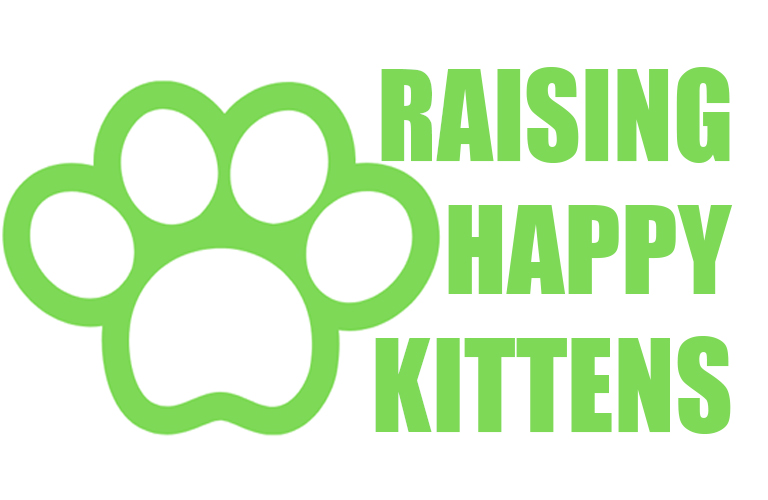

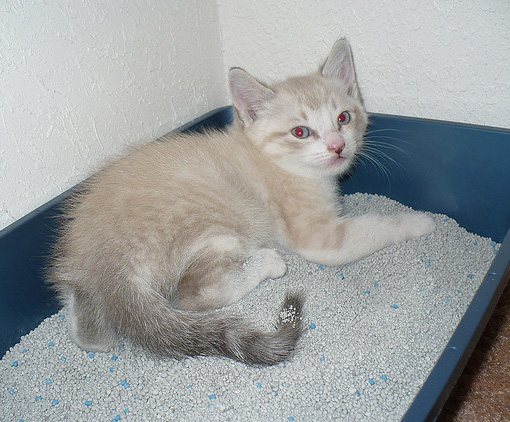
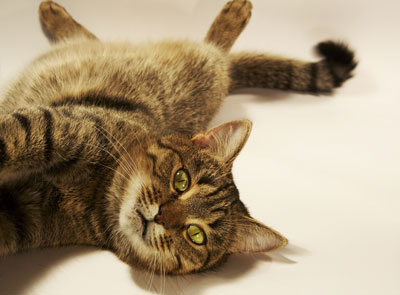
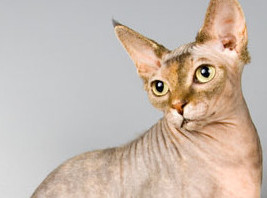
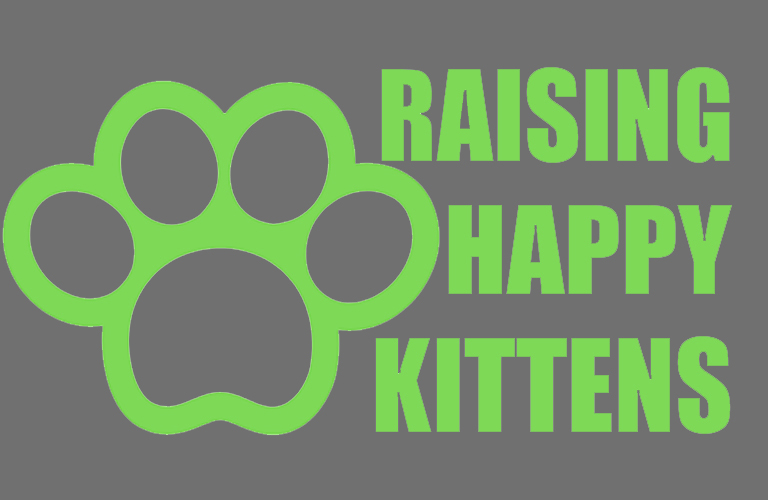
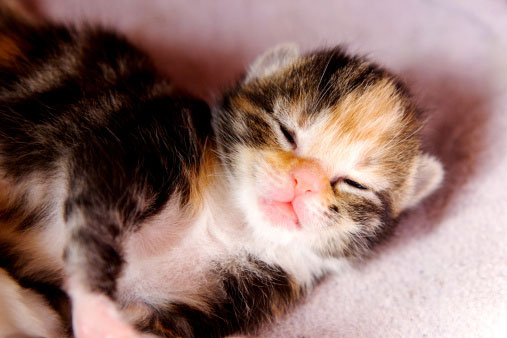
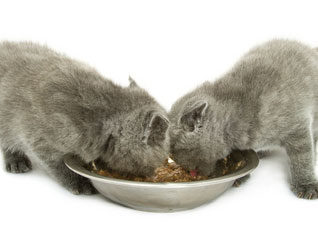
Kibble most certainly does not clean a cats teeth. Raw meat and bones do though.
That’s true, Jason. raw meat and bones would be the “ideal” kitten diet, but that is a little beyond what many kitten owners would like to deal with. We did mention earlier in the article that kibble does not clean a cat’s teeth, so we are in agreement. Thank you for your comment!